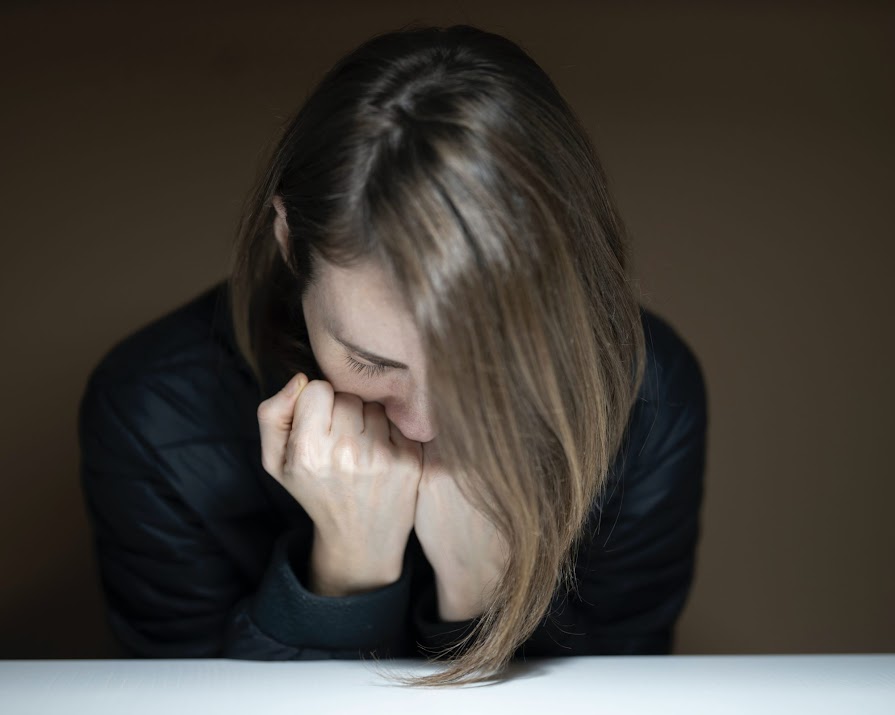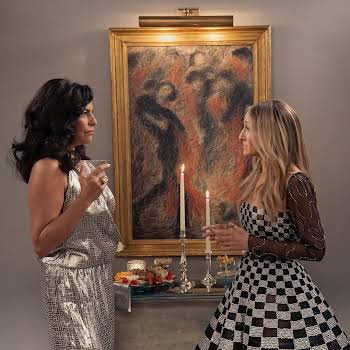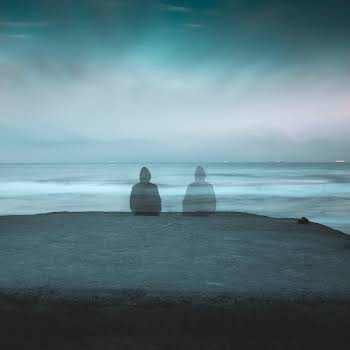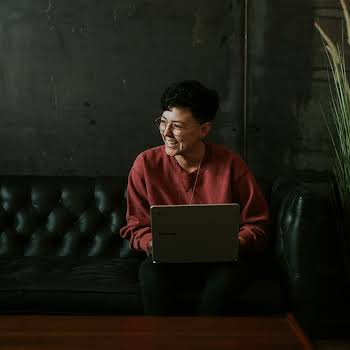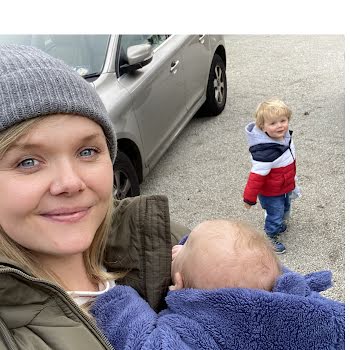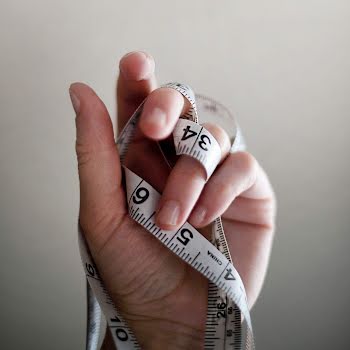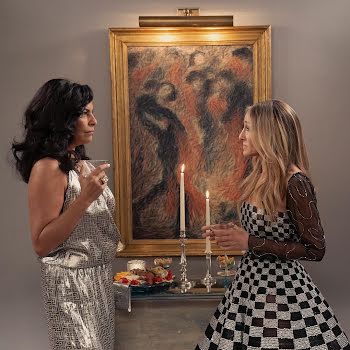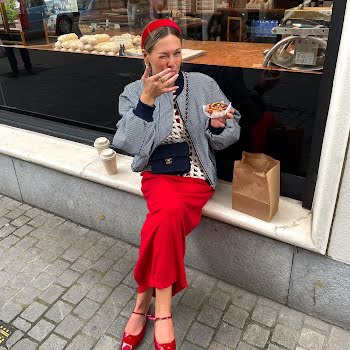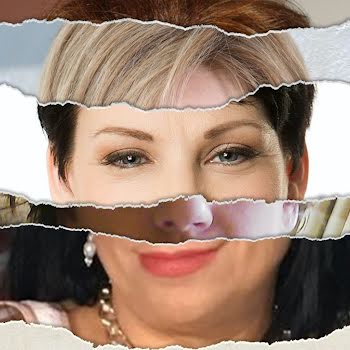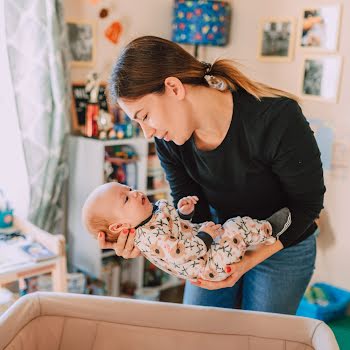
Niamh Ennis: ‘Grief broke me. Then I found the help of a counsellor’
By Niamh Ennis
07th Sep 2020
07th Sep 2020
Grief catches up with you when you don’t acknowledge it, writes Niamh Ennis
I’ll admit, I used to get very nervous writing about the grief and loss I’ve experienced in my life. Not because I didn’t want to share it with others, because I do, I always do, in the hope that someone reading it may need to hear what I have to say.
One of the hardest parts for me, when I was bereaved (the first, second and third time) was the loneliness that came with it.
When my fiancé died nobody else I knew had lost a partner, and this made it infinitely more isolating. So my writing about it, talking about it is my way of hoping that someone who needs to feel less alone, can.
But going back to my original point, the main reason I got nervous when discussing grief in the past, was simply that I didn’t ever want to appear to be ‘milking it’.
Now I do know that might seem quite strange, and those of you reading this might think, ‘how could anyone accuse you of exploiting such a dark time in your life?’ and truthfully, from the get go, I need to say that nobody ever accused me or implied that I ever did! I need to be very clear on that. This was and probably still is, all in my head.
But it was there and something put it there.
I was reminded, constantly, that nobody liked a Debbie Downer. I was taught that you should never air your dirty linen in public
Growing up, I was reminded, constantly, that nobody liked a Debbie Downer. I was taught that you should never air your dirty linen in public and so with that belief very much engrained in my mind, I believed I’d never be able to get away with carrying a long face around with me, no matter what the reason!
If I ever expressed sadness, despondency, or even worry, I was told, in no uncertain terms, to simply pull myself together and get on with it! Harsh but true.
This served me well, admittedly, in some situations in my life, but what had not been shared with me were the real and very necessary exceptions to this rule. Namely, that life would throw some genuine situations, tragedies and traumas my way that I should always be free to feel and express to the world. Nobody told me this, and so when faced with my own personal tragedies, I just shut down.
Not having the skills to understand the real disconnect between what was happening on the inside, in my heart, and what I felt able to show and express on the outside could and in my case, was, quite damaging. I see that now.
Grief brought this on to a whole other level entirely. Look, let’s step beating around the bush here, can we just admit that we all feel more than a little awkward around the subject of death? Despite the obvious fact that it’s something that happens in all our lives, it’s not something that we’re encouraged to, or want to, talk about openly. We just don’t always know what to say or do around death.
But in a perverse attempt to save others from experiencing that awkwardness we just don’t talk about it, we cover it up, we pretend we are doing better than we are. And so the cycle begins. We become disconnected from how we are truly feeling, on the inside. We don’t express it and think we are doing the right thing by pretending to be getting on with it. Even when we are not. Especially when we are not.
In my case, I was someone who started to feel that drama was an inevitable part of her life. I lost so many people close to me in such a short space of time that I had started to believe that to some extent I had created this. I attracted drama. I attracted loss. And they came.
Which in reality I know of course is utter tosh. Each loss that happened was part of their story not mine. But it took me quite a while (years in fact) to acknowledge and accept this. It was during this time, with me blaming myself, being angry with the world for all that had happened that I struggled most with my grief and yet to the outside world the pretence continued. I was the resilient one, the strong one. And to the most part I think I got away with it.
But that kind of internal pain and struggle always catches up with you.
Four years in, I felt the wheels coming off. It didn’t happen overnight but shortly after my mother’s funeral in the midst of tidying up her estate, I remember feeling the fight in me to pretend I was doing okay just weaken until it was no longer there. I was broken and I couldn’t hide it any longer.
She made me feel safe and gave me room to breathe, cry and slowly, over time, to rebuild.
That was when I reached out and sought the help of a counsellor and I was extremely lucky that I found a great one. She held space for me when I fell apart. She made me feel safe and gave me room to breathe, cry and slowly, over time, to rebuild.
But I also gave myself a lot of room to find out who I was becoming, now that I was finally willing to accept that my life had changed beyond recognition. That was the crucial time in the rebuild.
Because it was then I had to admit that the old Niamh was gone. She was never coming back and that was a new feeling of grief I hadn’t even considered. I missed the carefree girl who believed everything she wanted from life was hers. I missed the fun-loving woman who had ambitions and plans of her own.
What I didn’t know then was that this was my crumbling. This was the time that everything had to fall apart so that I could rebuild the me I was becoming. The me I am now.
Yes I’m different, yes different things matter, I have different priorities, different dreams and an almost unrecognisable life but am I happy again?
I’m glad to say yes. I’m very happy. Extremely so. And now I don’t care what people think when I talk about grief because that grief, every single piece of it, has made me who I am today!
Niamh Ennis is Ireland’s leading change & transformation specialist and founder of the RESET for Change 3 month 1:1 private coaching programme.
Niamh works with women who simply feel stuck, who want to commit to doing things differently and connects them with the person they were put here to be.
To work with Niamh on your own bespoke private coaching RESET programme just click here or visit www.niamhennis.com
Feature image: Pexels
Read more: ‘I left my permanent, pensionable job to follow my life’s true purpose’
Read more: Niamh Ennis: How to cure yourself of comparisonitis
Read more: Niamh Ennis: How to make a difficult decision











